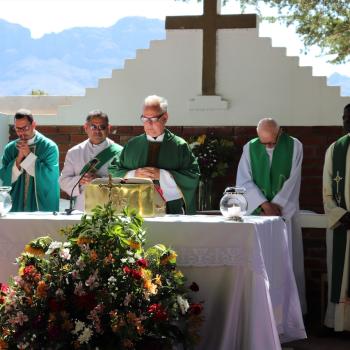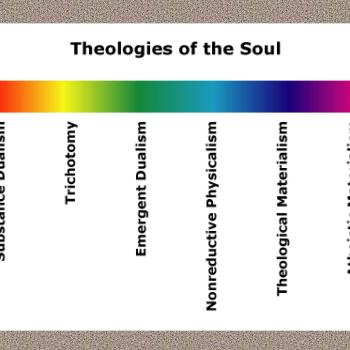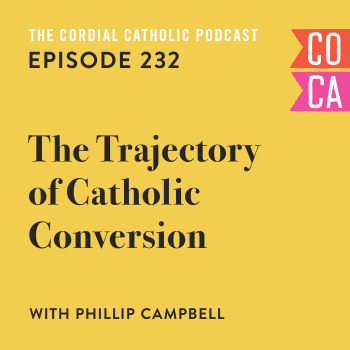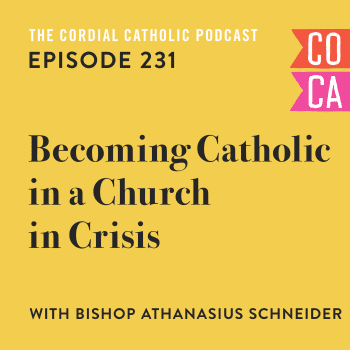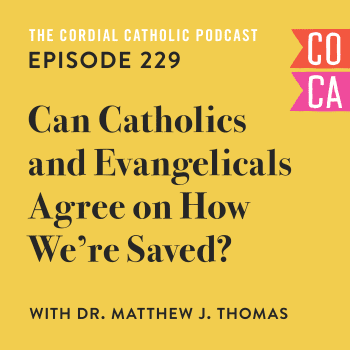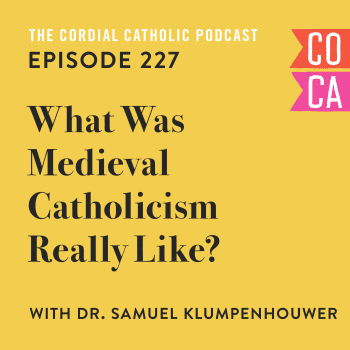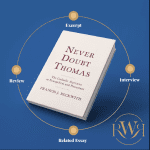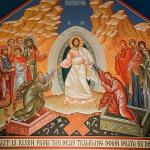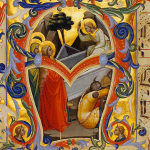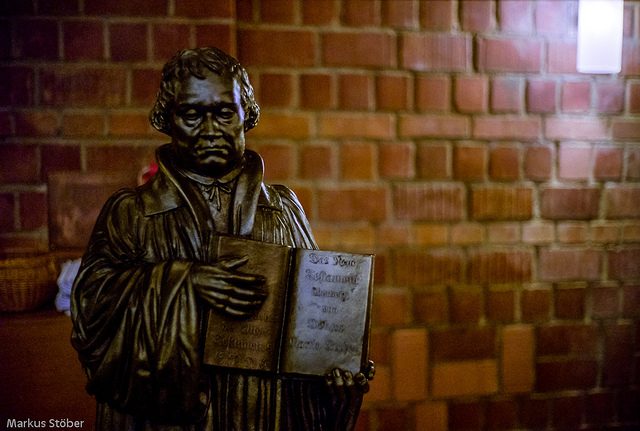
There’s a quotation buried near the end of a rather obscure book review by Protestant theologian Carl Trueman that I’ve hung on to for quite some time now.
It’s a good one, and I’ll share it in a second.
But I share it, only now, because I’ve just come across it again in the foreword to a book of Catholic conversion stories. The quote was proffered by Francis Beckwith a rather famous Catholic convert in his own right as the then President of the Evangelical Theological Society (an impressive academic network of Evangelical theologians).
Beckwith, writing about the ultimate catalyst for his own conversion to Catholicism, records this exact same quotation from Carl Trueman that I came across, and set aside, earlier in my own journey into the Catholic Church.
As I first dipped my toes into the Tiber River—the famous and metaphorical Roman river which has come to signify Protestant converts to Catholicism—Trueman’s cutting words played a role of some significance in whetting my appetite for further study.
And, like Beckwith, I soon found myself up to my knees.
It is, ultimately, a remarkably obscure quotation and to find it again seemed serendipitous.
So I had to share.
The quote is in a review of a book called Is the Reformation Over? by another Protestant theologian, Mark Noll. In his review Trueman muses over his own understanding of the Reformation and, importantly, our position towards it today.
Beckwith quotes him at length and so will I.
Trueman writes this,
Every year I tell my Reformation history class that Roman Catholicism is, at least in the West, the default position. Rome has a better claim to historical continuity and institutional unity than any Protestant denomination, let alone the strange hybrid that is evangelicalism; in the light of these facts, therefore, we need good, solid reasons for not being Catholic; not being a Catholic should, in others words, be a positive act of will and commitment, something we need to get out of bed determined to do each and every day. It would seem, however, that … many who call themselves evangelical really lack any good reason for such an act of will; and the obvious conclusion, therefore, should be that they do the decent thing and rejoin the Roman Catholic Church. I cannot go down that path myself, primarily because of my view of justification by faith and because of my ecclesiology; but those who reject the former and lack the latter have no real basis upon which to perpetuate what is, in effect, an act of schism on their part. For such, the Reformation is over; for me, the fat lady has yet to sing; in fact, I am not sure at this time that she has even left her dressing room.
In other words: If the Reformation is over, why aren’t you Catholic?
It’s a pointed question.
Catholicism, says Trueman, has the market cornered on historical continuity and institutional unity. Elements which should be of vital importance to any Christian given the fact that Jesus said He would establish a Church which nothing would overcome (Matthew 16:18) and prayed, in His final recorded prayer on Earth, for Christian unity (John 17:20-23).
The Catholic Church has the best claim to be the historically continuous Church that Christ founded and of being the most united, and the most unifying, Christian source on Earth.
So, says Trueman, to not be Catholic requires “good, solid reasons.”
Not being Catholic, he continues, “should, in other words, be a positive act of will and commitment, something we need to get out of bed determined to do each and every day.”
And, as an Evangelical cum Catholic, I agree.
But, such robust and intentional theological commitments are often disconnected from reality.
Because, in reality, I was an Evangelical Christian because that’s the brand of Christianity I was first introduced to.
And then that’s what I was.
And then that’s what I stayed for a long time until the difficulties with what I believed, and squaring those beliefs with history, mounted up to a breaking point.
And that’s when theology met reality and, as Trueman says, I had “no real basis upon which to perpetuate… an act of schism.”
The Reformation was over so I became a Catholic.
But sadly for most of us, and especially the Evangelical tradition I left, the Reformation rages on. But a Reformation of a worst sort than Luther’s: a silent, unheeded, and unimportant kind of Reformation.
A Reformation more akin to apathy.
Because for many years I hadn’t read any of the writings of the Early Church, the Desert Fathers, or the great theologians and saints of the Middle Ages. I hadn’t thought it important or given credence to learning about the History of Christianity from sources outside of my limited theological purview. I hadn’t considered digging into the ancient Church Creeds or the official teachings of the Church down through the ages.
And when I did read theology, apologetics, or Christian psychology it was from a very particular worldview even if I couldn’t recognize it at the time.
I gave not a second or single thought to the schism I was in.
And, I would’ve thought, what the heck is a schism?
Truly it was when I began to read about the Early Church; when I began to dig into the history of the Bible, Christianity, and the historic Church; and when I, then, finally dipped my toe into the Tiber and began to read the stories, and the convictions, which led so many converts before me to wade into the water that I began to understand the position in which I found myself.
Smack dab in the middle of a protest I had absolutely no desire to be in.
(And, after all, didn’t really believe in anymore.)
I wasn’t waking up every day, as Trueman suggested I should be, intentionally resolving not to become a Catholic.
I didn’t vehemently or even knowingly object to what the Catholic Church taught and, as it turned out, the more I read about Catholicism the more I actually liked (and believed to be true, good, and historically sensible).
And then, as I read and prayed, I came across a quote by a Protestant Theologian named Carl Trueman.
And you kind of know the rest.
But the point is, I think, that Trueman is exactly right—nail on the head—even if he gets a bit of it wrong. We Evangelicals don’t wake up every morning decidedly rejecting the only church that’s most inline with what Jesus says it should be. But we ought to.
Trueman, admittedly, makes a conscious decision not to be Catholic and, at least, that’s better than most of us do.
Because the Reformation is over, if you want it, and for the sake of Christian unity (on which Jesus places an incredibly high importance) we kind of need to figure this out.
Do we reject Catholicism for good, solid reasons? Do we get out of bed every day determined not to become Catholic?
Have we even thought about it before?
Maybe, like Trueman, our position is clear. Or maybe, like me, it was rapidly begin to slip away.
And maybe, just maybe, we’ve just been waiting for that distinctive nudge.
A push from the edge of the bank, headlong into the flow.





